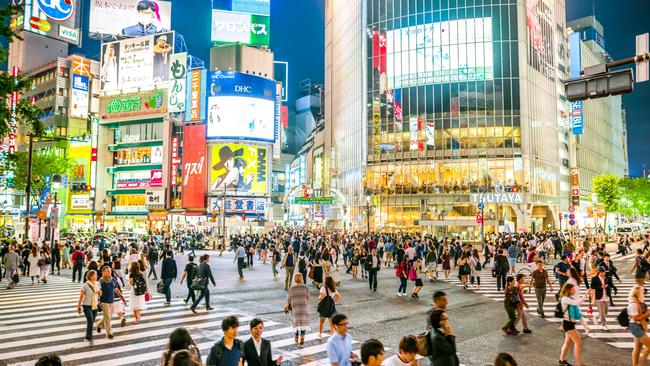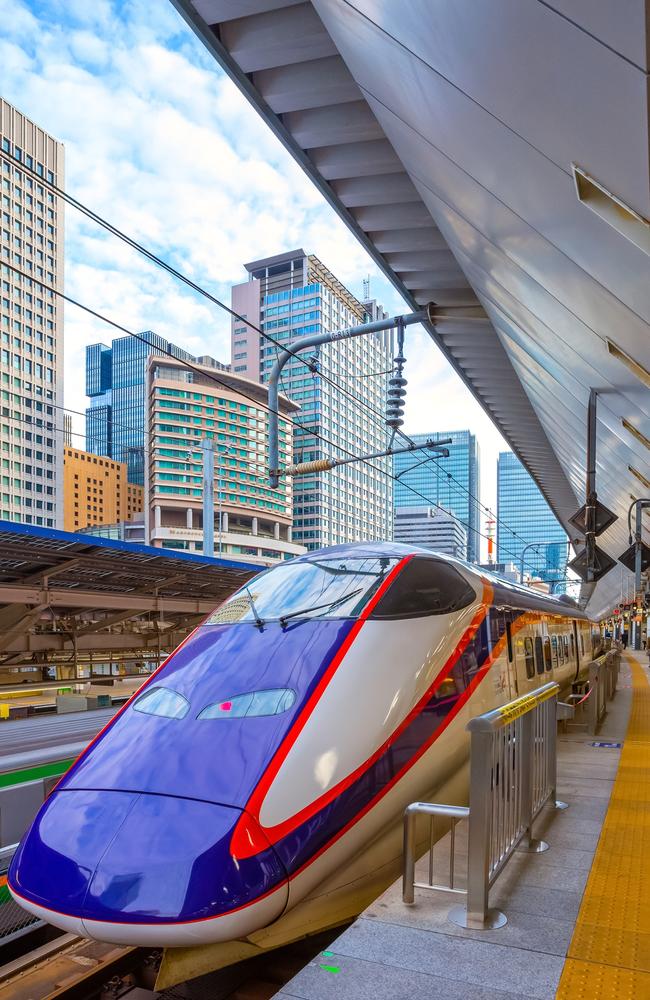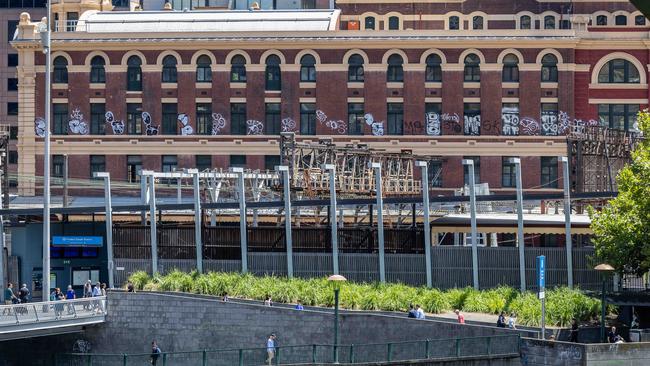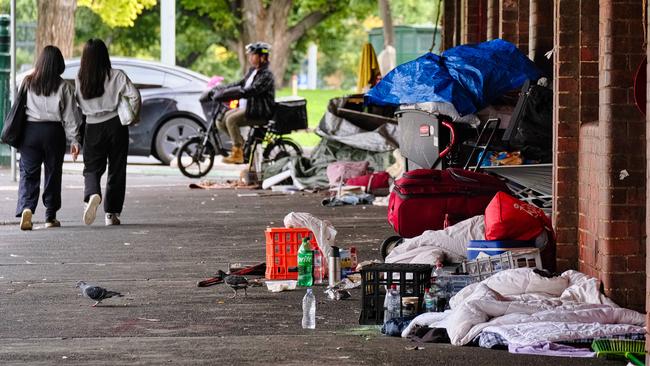Steve Price: Melbourne urgently needs to reclaim destination reputation in 2024
Dirty, grimy Melbourne with its inefficient transport system, city streets lined with homeless beggars and multitude of closed shops could learn a lot from other cities, especially Tokyo, writes Steve Price.
Opinion
Don't miss out on the headlines from Opinion. Followed categories will be added to My News.
A well-respected Melbourne business executive was shocked walking through the CBD this week to see a council employee question a pedestrian about littering.
One could only hope it’s a fresh start for 2024 with all the criticism aimed at the dysfunctional Melbourne City Council finally hitting home.
Sadly, on reflection, my business mate concluded the action was probably tied to the major event taking place this week and next – the Australian Open Tennis. That he was surprised council would employ littering police simply reinforces how Melbourne’s standards have dropped and how our priorities have become warped.
It wasn’t that long ago that New York and its policy of zero tolerance for minor offences – remember broken window policing – was held up as an example to the rest of the world. Reportedly that great city has again fallen on bad times off the back of Covid and rampant illegal migration causing massive homeless problems there and in places like San Francisco and Los Angeles.
The example Melbourne should in 2024 strive to emulate is Tokyo in Japan.

Luckily, I was able to visit the Japanese capital three weeks ago for a couple of days over New Year. Tokyo has a population just a tick over 37 million people compared with the total population of Australia which is tipped to reach 27 million any day now.
Melbourne, by comparison to Tokyo, has five and a quarter million residents. The difference between the two cities is stark.
Let’s start with transport – everything from ticketing to on-time arrival, speed and cleanliness. Tokyo has two domestic and international airports – Narita and Haneda – serviced by underground trains, buses and a monorail. On arrival at Haneda you are met by a posse of English-speaking airport staff there to explain the correct lanes to access immigration and customs. Baggage arrival is swift and access to exit gates automatic.
Tokyo central from both airports is serviced by a combination of underground trains and heavy above ground rail and, of course, the famous Shinkansen bullet trains. Ticketing is accessed by a mobile phone app that allows you to load it with cash and tap and go across the system.

Melbourne by comparison has one airport with no rail link – disgracefully promised for decades and never delivered – a baggage arrival hall resembling that of a third world country, queues for a bus link to the city, outrageously expensive car parking, a dysfunctional Myki ticket system with no tap and go ability using a credit card, and two CBD train stations dominated by homeless beggars, closed retail shops and dirt, grime and graffiti.
Tourists arriving for the first time must be shocked. First impressions matter and a few banners promoting the tennis or Grand Prix don’t cut it.
Hitting the streets in Tokyo you are immediately pleasantly surprised by the total absence of litter, graffiti, homeless people, dog droppings, electric scooters, or any kind of traffic-clogging bike lanes. The Japanese are polite, honest and follow the rules that allow such a massive number of people to co-exist. Shinjuku train station – Tokyo’s busiest - on the latest figures I could find from 2021 sees 522,178 passengers pass through every day.
Station precincts are surrounded by restaurants and bars where people politely queue to sample their preferred before- and after-work snacks.

I was in Tokyo on New Year’s Day, a day celebrated by the Japanese by visiting their local Shrine to pay their respects and pray for good luck for the year ahead.
The crowds were a mixture of older Japanese, family groups and dozens of younger Japanese in their late teens and twenties.
Unlike Melbourne or other Australian big cities, I saw no public drunkenness, no obvious drug use or aggression on the streets, no screaming from mentally unwell people living rough.
Obviously, a city the size of the Japanese capital and a country with a population the size of Japan isn’t perfect. The Japanese population is in decline and ageing is an issue politicians there are grappling to fix. Immigration is virtually non-existent and young people are being encouraged to have larger families and Japan relies heavily on imported natural resources, much of it from Australia.
Real estate especially in Tokyo is mind-numbingly expensive with most people living in small apartments.
But it’s the small things Melbourne should be copying if we want to regain our reputation as a desirable tourist destination. Make no mistake we are now well behind just about every other Australian capital city when it comes to a place to visit. Don’t believe the arrival numbers which are bloated by major event spectators, without which we fall off a cliff.
It’s great to have tennis, the Grand Prix and the horse racing but outside those annual events we have simply become a not very interesting place to visit.

Sydney obviously has the harbour and city surf beaches, Brisbane is the gateway to the Sunshine and Gold Coast tourism hot spots while Adelaide is small, clean, full of great food and its own mini sports events like LIV Golf and the Gather Round in the AFL.
Melbourne as a priority must fix the city and make it a desirable shopping destination like it once was. Entry points like the airport and train stations need urgent money on spent on them — fixing Flinders St station and Southern Cross should be a priority. There must be a blitz on graffiti removal not more press releases.
We must rid our streets of the homeless and prioritise street-side dining and drinking. Docklands is a lost cause but must be rescued using its natural waterside location. The useless Melbourne Star Ferris wheel needs to be either blown up or relocated. Even Crown Casino needs to get its mojo back and reclaim its destination reputation.
Sadly, I don’t see the dynamic leader needed to do the job but it’s urgent and we can’t waste any more time.
Melbourne needs to make 2024 the year of revival.
LIKES
• The legendary Margaret Court back at the Open where she belongs
• PM Albanese in media interviews forced to confirm the Stage 3 tax cuts
• Started a new show on Sky News – weekly between 6p.m. and 7p.m
• International airfares for 2024 slowly coming down in price
DISLIKES
• Woke Australian Open ignoring our national day on January 26
• Melbourne’s soggy summer - whatever happened to the predicted heatwave
• Juvenile crime out of control across suburban Melbourne
• ATM’s hard to find and running out of cash
More Coverage
Originally published as Steve Price: Melbourne urgently needs to reclaim destination reputation in 2024





